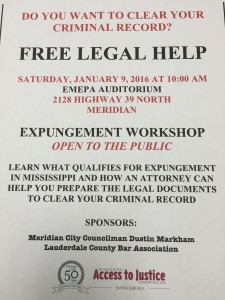A guardianship for schooling purposes can sometimes become burdensome; but there are methods to make these guardianship less burdensome. So why should we make something more complex than it really has to be? And I’m going to provide some information, that will hopefully assist you when trying to wade through what is sometimes referred to as a “school guardianship”.
First of all, a “school guardianship” is a guardianship of the person that is designed to get a child into a particular school, generally via grandparents and within the tolerance of the school district involved.
Before 2013, a guardianship of the person had to meet all of the same requirements as for an estate, including notice to creditors, probate of claims, and accountings, according to Mississippi Code Ann. Sec. 93-13-38; however, this changed as of July 1, 2013.
The changes to Miss. Code Ann. Sec. 93-13-38 include: “[t]he requirements in a guardianship of the person are modified to the extent that notice to creditors is not required, reports will be made only as often as the court requires, and the guardianship may be closed without the need for any accounting unless otherwise determined by the court.”
So, an attorney is still required, as in any estate matter; but the notice of creditors is gone and accounitngs may be waived or extended as the court deems proper.
But before you go out and decide to get a guardianship of a person, you should know that there are still responsibilities the guardians are required to comply with. A Guardian is entitled to, and are responsible for the care, custody and control of the Ward. He/She is responsible for providing food, clothing, shelter, education and all medical and dental care required by your ward. The Guardian has the right to determine where the ward lives; however, the Guardian does not have the right to change the ward’s residence, or relocate from the county in which his guardianship has been established, or from the State of Mississippi, without Court approval. (Miss. Code Ann. §93-13-61 and §93-13-63). Also, it is important to note that even when a minor has a guardian, the parents are still obligated to financially support the child, and may even be awarded visitation with the child.
Now that you know the responsibility of a Guardian, if your still interested in obtaining a Guardianship of a person, you will need to do the following:
- The potential Ward must have been a citizen of MS for a period of at least 6 months before the filing of a Petition for the Court to have jurisdiction;
- An attorney is required by Statute;
- A Petition for Guardianship of the Person will need to be drafted, signed by the petitioner and attested to (in front of a notary) and filed in the Chancery Court of the County the child is a resident of; (in Lauderdale Co. the filing fee is $149)
- A Summons in accordance with M.R.C.P. 81 must be issued, setting a hearing date;
- The parents of the Ward (or next of kin) must be served with the Petition and Summons or join in the petition;
- If the potential Ward is 12 yrs or older, he/she must be served with the Petition and Summons;
- At the hearing the evidence showing the need for a guardianship may be presented and any contesting evidence or views may also be presented;
- Once an Order Appointing a Guardianship of the Person is granted, the Guardian(s) must take an Oath and then Letters will be issued;
- The letters and order will be needed when enrolling the ward in school and for other purposes such as extra-circulars.
*Please note that some procedures may vary from county to county, so always contact the Court Clerks and Administrator to find out local procedures.

